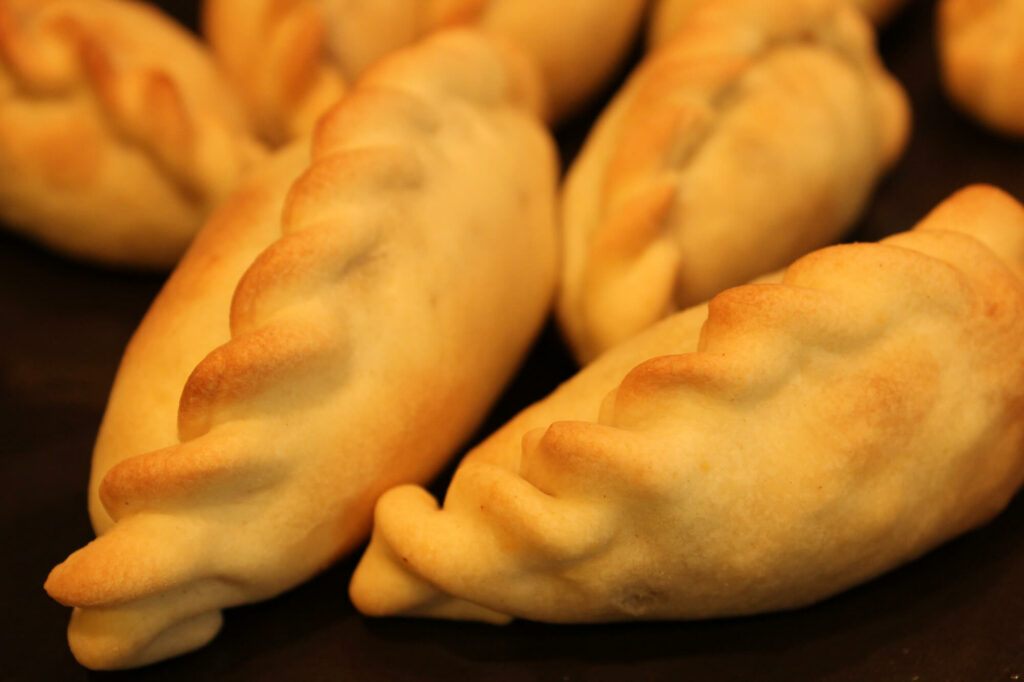
This article seeks to honor not only the exquisite craft of making “empanadas santiagueñas” but also the deeper connections these traditions foster within families and communities, echoing the sentiments of love, remembrance, and continuity that our most treasured culinary legacies carry.
In the rich mosaic of family traditions, some recipes stand as monuments to the love and craftsmanship of those who came before us. Today, we delve into the story of a beloved grandmother, whose empanadas became more than a local delicacy, they became a precious inheritance for her family.
In a cozy town in the north of Argentina, where every face was familiar and stories were shared like daily bread, there lived Abuela Dominga, a grandmother whose hands were fluent in the language of love and flavor. Her empanadas were not just food; they were parcels of joy, crimped at the edges with care and baked to golden perfection.
Abuela Dominga’s culinary reputation was unmatched. Known not solely for her gastronomic expertise but also for her keen selection of the freshest market produce, her home became a haven for all seeking the warmth of home-cooked meals. Students, workers, and passersby alike would find tasty bites and satisfaction in her dishes, with the empanadas being the crown jewels of her kitchen.
But it was within the family that these empanadas took on a deeper significance. Once a week, the aroma of barbecue and the distinct scent of baked dough would signal a big family gathering—a time for laughter, stories, and the strengthening of bonds. The empanadas, served as starters, were more than just a prelude to the meal; they were a tangible piece of their grandmother’s affection, each bite a testament to her love.
The peculiar side to this story, in my opinion, is that she chose to pass down this culinary treasure to her daughters alone, turning the recipe into a sacred heirloom, a legacy that carried the essence of her spirit and skill. Today, the absence of the beloved grandmother is felt, but her presence is revived with each batch of empanadas her daughters prepare. The exact replication of taste and texture—a testament to the power of tradition and the unbreakable chain of familial love—keeps her memory alive.
These empanadas have become more than a dish; they are a bridge to the past, a comfort in the present, and a promise for the future. They serve as a reminder that some recipes are not just instructions on a page but are imbued with the soul of the creator, meant to be cherished, shared, and passed down through generations.
As we savour these empanadas, we are reminded of our dear grandmother and the profound impact of culinary heritage. They narrate a story of love and the timeless bonds of family, preserved one empanada at a time.
You will always be in our hearts, dear Abuela Dominga!